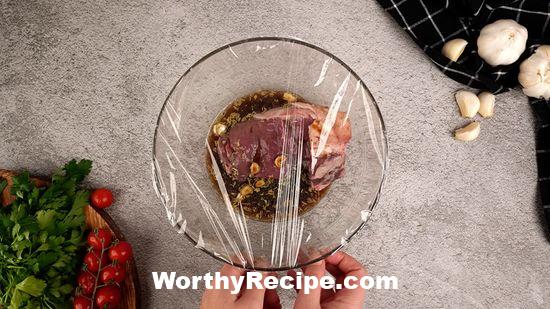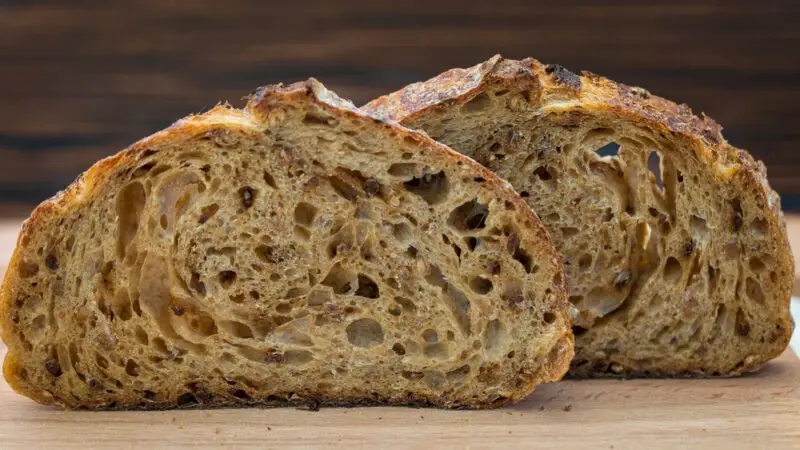Top Tips for Cooking Marinated Meat Without Burning It
Introduction
Cooking marinated meat is a fantastic way to add flavor and tenderness to your dishes. However, it’s not always easy to cook marinated meat without burning it. In this article, we’ll give you our top tips to ensure that your meat stays moist and flavorful without becoming charred or overcooked.
Understanding Marination
Marination is the process of soaking meat in a seasoned liquid before cooking it. This step helps to tenderize the meat, as well as infuse it with delicious flavors.
There are two main types of marinades: acid-based and enzyme-based. Acidic marinades typically use ingredients like vinegar, citrus juice, or wine to help break down the muscle fibers in the meat. Enzyme-based marinades use fresh fruits like papaya or pineapple to tenderize the meat.
Choosing the Right Cut of Meat
Not all cuts of meat are created equal when it comes to marinating. For the most part, tough cuts of meat benefit the most from marination because they need more time to break down and become tender.
Here are some cuts that work well with marinade:
- Flank steak
- Skirt steak
- Ribeye
- Chuck roast
- Pork shoulder
- Chicken thighs
- Lamb chops
Preparing the Meat for Marination
Before you can marinate your meat, you need to clean and trim it properly. This means removing any excess fat or sinew that might interfere with the flavor or texture of your dish.
Scoring your meat can also help to increase surface area for the marinade to penetrate. This involves making shallow cuts in a diamond pattern on the surface of the meat.
How to Properly Marinate Meat
When it comes to marinating, you want to make sure that you do it correctly. Here are some steps to follow:
Step 1: Mix your marinade ingredients in a bowl or resealable bag.
Step 2: Add your meat to the marinade and coat it evenly.
Step 3: Seal the bag or cover the bowl with plastic wrap.
Step 4: Place the marinated meat in the refrigerator for the recommended amount of time. This can vary depending on the type of meat and marinade, so be sure to consult a recipe or cooking guide.
Tips:
- Avoid using too much salt as this can dry out your meat.
- Avoid over-marinating your meat as it can turn it into mush.
The Right Temperature for Cooking Marinated Meat
Temperature control is crucial when it comes to cooking marinated meat. You want to make sure that you cook your meat at the right temperature in order to ensure that it’s both safe and tasty.
Here are some tips for choosing and controlling temperature:
- Cook beef, pork, lamb, and game meats to an internal temperature of at least 145°F (63°C).
- Cook ground meats like beef and pork to an internal temperature of at least 160°F (71°C).
- Cook chicken and turkey to an internal temperature of at least 165°F (74°C).
- Use a meat thermometer to accurately measure the internal temperature of your meat.
Using the Right Cooking Method
There are various methods you can use for cooking marinated meat, and each has its own pros and cons.
Here are some tips for choosing the right cooking method:
- Grilling: This is great for cooking marinated meats with a lot of flavor. However, it requires careful attention and can be tricky to get right if you’re not used to it.
- Broiling: This is a good option if you don’t have access to a grill. Broiling involves cooking your meat on high heat in your oven’s broiler, which can crisp up the outside while keeping the inside moist and tender.
- Roasting: This is a good option for large cuts of meat like pork loin or beef brisket. Roasting involves cooking your meat at a low temperature in the oven for an extended period of time.
Grilling vs. Broiling vs. Roasting
Each type of cooking method has its own unique advantages and drawbacks.
Here’s what you need to know about each method:
Grilling:
- Pros: Great flavor, crispy exterior, works well with most marinades.
- Cons: Harder to control temperature, requires more attention.
Broiling:
- Pros: Easy to do, good crust formation, works well with lean cuts of meat.
- Cons: Can easily dry out meat if not careful, may not achieve as much flavor as grilling or roasting.
Roasting:
- Pros: Tenderizes meat, good for large cuts, low and slow cooking makes for amazing flavor.
- Cons: Takes a long time to cook, can be complicated for beginners.
Avoiding Common Mistakes When Cooking Marinated Meat
Here are some common mistakes that beginners make when cooking marinated meat and how to avoid them:
- Over-marinating your meat can turn it mushy and unappetizing. Make sure to follow the recommended marination times in your recipe or cooking guide.
- Cooking your meat at too high of a temperature can burn or dry it out. Make sure to use a meat thermometer to monitor the internal temperature of your meat and adjust the cooking temperature accordingly.
- Cutting into your meat too soon after cooking can cause all the juices to come spilling out, leaving you with a dry piece of meat. Let your meat rest for at least five minutes before cutting into it to allow the juices to redistribute.
Serving Marinated Meat
Finally, let’s talk about serving marinated meat. Here are some tips to keep in mind:
- Slice your meat against the grain to make it more tender and easier to chew.
- Serve your marinated meat with complementary sides like roasted veggies, mashed potatoes, or rice pilaf.
Conclusion
By following these tips, you can cook delicious, flavorful marinated meats without burning them. Remember that preparation is key, and taking care to choose the right cut of meat, marinade it properly and cook it at the right temperature can make all the difference.
Frequently Asked Questions
Can I use a stove top or do I need a grill?
Either a stove top or grill can be used, depending on the weather and what you have available. Just make sure your pan or grill is hot before adding the marinated meat to ensure even cooking.
How long should I cook the marinated meat?
The cooking time will depend on the thickness of your meat and the level of doneness you desire. It is best to use a meat thermometer to check for internal temperatures. In general, most cuts of beef and pork should be cooked to an internal temperature of 145°F, while chicken should reach a temperature of 165°F.
How do I prevent burning while still getting that charred flavor?
To prevent burning, make sure to turn your meat frequently and monitor it closely. You can also use indirect heat by turning off one burner of your grill or moving coals to one side of your charcoal grill. This will allow the meat to cook more slowly without burning, while still achieving that delicious charred flavor.
Do I need to remove excess marinade before cooking?
It is best to remove any excess marinade before cooking as it can cause flare-ups and burning on the grill. Simply pat dry the marinated meat with a paper towel before cooking. However, if you prefer more intense flavor, you can reserve some of the marinade and brush it over the meat during cooking for added taste.







